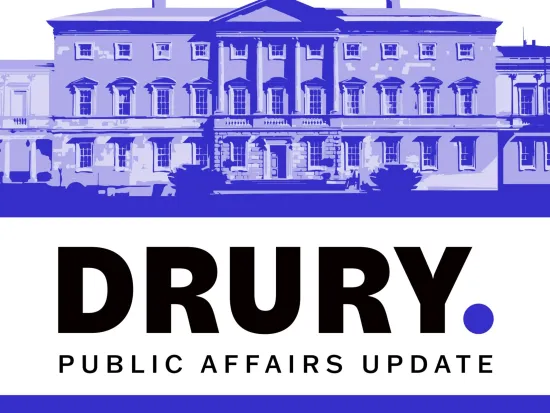Áras 2025 - winners, losers, buses, and a prediction
As in sport, the winners of elections always write the history of the campaign, and this presidential election is no different. There are a lot of “I told you so” articles being written at the moment, all with the benefit of 20:20 hindsight and with the added luxury that none of us could be bothered looking back at what our political analysts said earlier in the year.
All can agree that Catherine Connolly won hands down. Better campaign, better media performances and struck a chord with enough people to romp home on the first count. In particular, she managed to convey the angst that many, particularly younger people, feel about our powerlessness to affect the horror of Gaza.
But she also got some help along the way. Mairead McGuinness’ ill health removed a candidate who would not have had the baggage of 10 years in Government to explain/defend. While Mairead would have had her record in Europe scrutinised in detail, she might well have made attitudes to Europe a bigger issue in the campaign. Would she have won? No one knows, but the answer is probably no given the other headwinds that Heather Humphreys faced.
The campaign that never was
The reasonable assumption from early/mid 2025 was that the contest would be between four - a mix of left leaning candidates (Catherine Connolly and a Sinn Féin candidate) and centrist/right leaning candidates (FG and FF). If the General Election pattern was followed, then the FF or FG candidate would probably win. But this misses the fact that parties don’t own votes and voters see the presidency as very different from general elections.
Neither Mystic Meg nor Nostradamus could have predicted that Sinn Féin -the leader of the opposition- would pass on having its own candidate as it did in 2011 and 2018. It was a shrewd, strategically clever move by Mary Lou McDonald. If Catherine Connolly won, it was a sign that people wanted rid of FF/FG; if she lost, it was Catherine Connolly’s loss. It was perhaps also a signal to the rest of the left that Sinn Féin would give them space to thrive in future elections. That remains to be seen but a “vote left, transfer left” arrangement is now far more likely to be a feature of future elections.
Nor could they have predicted the implosion of the Fianna Fáil candidate. I am in a minority who believes that Michael Martin was right in how he went about picking a candidate. He was right to look outside politics. He was right to look for someone with a record of public service and some name recognition. He just chose badly.
The current Soldiers of Destiny who are bewailing the lack of genuine democracy in how the party picked its candidate might reflect on the fate of Gay Mitchell in 2011. Gay was picked by the Parliamentary Party against the wishes of the party’s hierarchy. Despite being a seasoned politician and a consistent constituency vote getter, Gay Mithcell bore the brunt of a fickle electorate. Having given Fine Gael 36% of the vote in February 2011, its candidate slumped to 6.4% in the November contest – a lower per centage than Jim Gavin’s this year.
A Budget and a bus
The timing and content of the Budget also helped Catherine Connolly. Why the Presidential Election was held after the Budget (which was widely forecast to be unpopular) is a question only the Taoiseach and Tánaiste can answer. The absence of income tax relief for middle Ireland did nothing for the mood of the centrist electorate Heather Humphreys was trying to woo.
Finally, the timing and crassness of Ivan Yates “smear” intervention provided the Connolly campaign with a very useful shield at a time when its candidate was beginning to come under greater scrutiny. If any FG operative can get their hands on a double decker bus, I suggest they invite Ivan to inspect the boot, before reversing over him.
Media scrutiny
Those now engaged in fretful hand wringing about the lack of choice and the number of spoilt votes should reflect that the exact same nomination system provided 6, 7 and 5 candidates in the last three contested elections (2018, 2011 and 1997, respectively). Perhaps those in the media who now lament the choice offered might reflect on the extent to which media scrutiny and intrusion, driven it seems by a search for the “exclusive” killer bullet, may well be discouraging prospective candidates from coming forward.
Lessons forgotten and a prediction
The great pity is that the lessons of this election will most likely be forgotten when the 2032 campaign comes along. I predict that the then Sinn Féin/Fianna Fáil government parties will each select one of their grandees to stand, only to be beaten by Michael Healy Rae. The Kerry man will be the agreed independent candidate of Fine Gael, a medley of Independents, as well Labour and the Soc Dems (still miffed by Sinn Féin decision to coalesce with Fianna Fáil after the 2029 election).
Gerry Naughton, Director Public Affairs





